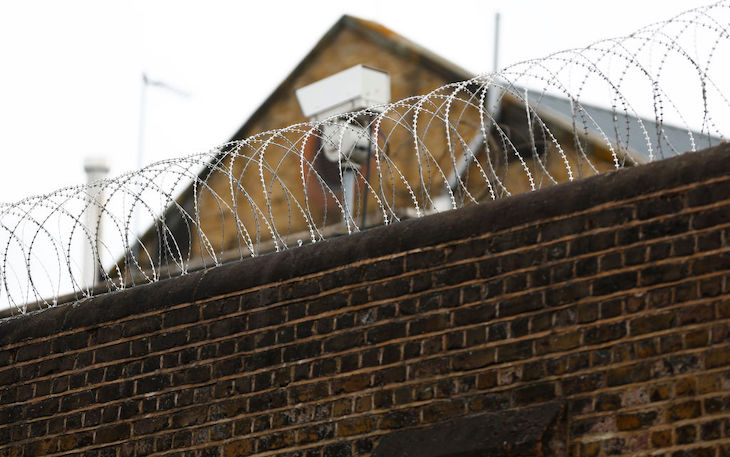Two recently-released prisoners have lifted the lid on corruption and sexual harassment in Britain’s prisons. Beatrice Auty, who was imprisoned for money laundering, said that she was harassed by a male prison officer at HMP Bronzefield in Surrey. A former officer, Lee Davis, who spent two years in prison for corruption, also told the BBC of a culture where staff routinely use their knowledge of security measures to smuggle contraband inside.
It doesn’t take many officers who don’t follow the rules to undermine the entire system
The company that runs HMP Bronzefield, said that, while it cannot comment on individual cases, ‘where complaints are received about any employee, we undertake all appropriate investigations and take necessary actions as needed’. Meanwhile, the Ministry of Justice’s response to the report suggests that this could be a case of a few bad apples.
‘The overwhelming majority of Prison Service staff are hardworking and honest,’ the MoJ said in a statement, ‘we’re catching more of the small minority who break the rules. This includes by bolstering our Counter Corruption Unit and strengthening our vetting process.’ Is this true?
Most prison officers and staff aren’t corrupt. The problem is that it doesn’t take many officers who don’t follow the rules to undermine the entire prison system.
The supply of contraband which threatens to overwhelm prisons in Britain relies upon either complicity or incompetence. Whatever the cause, it’s a lucrative trade. Davis explained that he was paid £400 to £500 per ‘package’ of cannabis, steroids and phones. This was in 2010. Prices have risen since. When I was an inmate at HMP Wandsworth in 2020, I knew of an officer who would charge £1,000 for a delivery of tobacco or drugs. Even in our most secure prisons, this happens. I spoke with a former prisoner, ‘Mike’, who was jailed at Belmarsh, the prison which holds some of the most dangerous terrorists. He was able to corrupt an officer who repeatedly smuggled in iPhones.
This really shouldn’t be possible. Prisons ought to be secure. Most people probably imagine them to be something like an airport, with everyone – and everything – being scanned on its way in. In reality, security is often lax. Davis told the BBC that he was only ‘searched twice in three years’. This would be laughable, were it not so serious.
John Podmore, a former governor of Brixton and Belmarsh, who was head of the national Corruption Prevention Unit for the prison service, believes that the drugs trade in prisons could be worth around £1 billion per year. He arrives at this estimate because prison inspections regularly report that drugs are easy to obtain, that, in some cases, over half of prisoners are testing positive for drugs, and that drugs inside jails sell for approximately three times their ‘street price’. On this basis, a typical drug-using prisoner may be spending £80 or more per day, with perhaps 40,000 regular users in the prison system. John says this is a ‘hidden tax on their families’. He’s right. Earlier this year, I spoke with the mother of a prisoner at HMP Wandsworth. She explained that dealers came to her home address, demanding money for drug debts incurred by her son inside. Drugs are a scourge in prisons. They kill and harm. Often inmates are released more addicted then when they arrived, and these addictions drive further crime and create more victims.
It simply isn’t good enough then for the MoJ to assure us that ‘the overwhelming majority’ of officers are fine. There are many good, decent and honest officers in the prison system. But enough aren’t that it’s a problem. I often hear whispers from serving prison staff about corruption at higher levels. They fear that senior staff are protected by the system.
Internal whistleblowing mechanisms are often not up to the task. Louise, a former prison officer who did not want to disclose her real name, told me that she suffered appalling sexual harassment from a male officer who had been appointed as her mentor. When Louise reported what was happening, she was ostracised by colleagues. The man was then moved twice to other prisons where he was accused of sexual harassment.
This culture of organisations hiding, minimising, and failing to report matters to the police brings to mind the Church of England’s latest scandal. The only cure for wrongdoing is truth, as the MoJ appears to recognise. In recent years, they’ve established a Professional Standards and Behaviour group and a Tackling Unacceptable Behaviour Unit. Both aim to make it easier for staff to report colleagues who are breaking the rules. Let’s hope that more brave serving staff are willing to come forward and leak the evidence necessary to root out corruption and misconduct from our prisons. Otherwise, our jails will remain pits of despair, addiction and abuse.







Comments